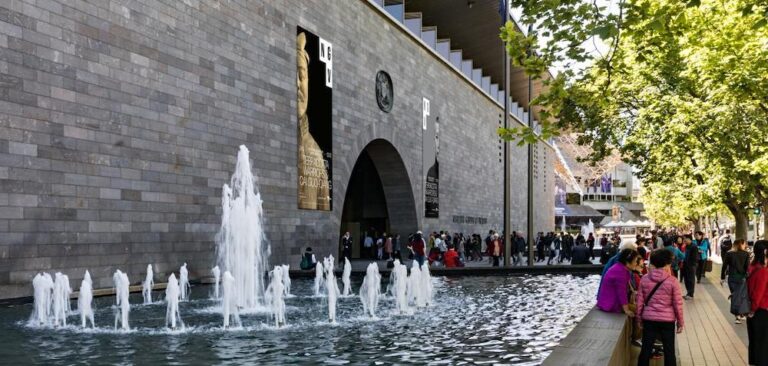
The new territory for marriage
The national push for gay marriage was stonewalled in Canberra by our top decision-makers for some time to come but the nation’s capital will be the next battleground for this fierce debate. The results from last week’s Australian Capital Territory elections came down to the wire, leaving a single Greens MP to decide whether Labor would notch up a fourth consecutive term in government or return the Liberal Party to power after more than a decade in opposition.
Greens MLA Shane Rattenbury backed Katy Gallagher’s Labor government for another four years with a 15-page agreement, listing about 100 items to address this parliamentary term. On page nine, sitting between additional funding for Aboriginal legal services and a review of the Building and Construction Training Authority, the agreement pledged to ‘legislate for marriage equality’.
No deadlines are set to narrow down when this law change will be passed over the next four years but ACT Labor’s deputy leader Andrew Barr said it will come early in this parliament. While the laws are likely to clear without fuss, there are two serious hurdles ahead that will determine if the state-based marriage equality experiment will succeed.
Firstly, there is the looming threat of a High Court challenge from the federal government that ebbed away at the confidence of Tasmanian law makers in September. The second is the federal government’s controversial veto over territory laws.
Former Greens Leader Bob Brown and Labor watered down these laws last year so that only the federal Parliament can overturn laws in the ACT and the Northern Territory instead of “at the stroke of a ministerial pen”.
Australian Marriage Equality national convenor Rodney Croome welcomed the commitment but warned any intervention by the federal government would be hypocritical.
“If the ACT becomes the first place in Australia to allow same-sex marriage it will benefit the territory socially and economically, as well as bringing immense pressure to bear on the states and the Commonwealth to follow suit,” he said.
“It would be hypocritical of the federal government to attempt to override an ACT Same-Sex Marriage Act given federal Parliament’s decision last year to grant the territories greater powers of self-government.”
 On a local level, marriage equality supporters are quietly confident the laws will proceed unchallenged. Equal Love Canberra spokesman Chris Bourne told the Star Observer he hoped the law changes came sooner rather than later.
On a local level, marriage equality supporters are quietly confident the laws will proceed unchallenged. Equal Love Canberra spokesman Chris Bourne told the Star Observer he hoped the law changes came sooner rather than later.
“Obviously it’s a welcome development and we’re looking forward to it passing,” he said.
“I guess what they are kind of thinking of, at least right now, is making sure that this change happens as soon as possible, really.”
He said he expected the local reform to revive the national debate which had tapered off since it was shot down twice at a federal level.
“What I hope and what I think will happen is it will put the issue back on the federal agenda,” he said.
“It would be a very bad move for them tactically, I mean they looked bad enough voting down the federal bill when a majority of the population is fine with same-sex marriage.
“But if they were to take the time and effort required… it’s going to make federal Labor look very bad.”
Barr, ACT Labor’s openly gay deputy leader, said they would honour the marriage equality commitment early in the parliamentary term.
“As part of that commitment, we made it clear that we would support state and territory same-sex marriage legislation if the federal Parliament did not support marriage equality,” he said.
“Any veto would, of course, be disappointing. But we are committed to pursuing marriage equality. The threat of a veto is not a reason not to proceed,” he told the Star Observer.
ACT Labor campaigned this election with a vision for Canberra to become the most LGBTI-friendly city in Australia.
While marriage is still the focus, both Tasmania’s and the territory’s efforts do raise a point for civil unions. Civil unions are argued to be roadblocks towards same-sex marriage, however only Tasmania and the ACT have civil union schemes and both pave the way for marriage equality in Australia.
Croome rejected the notion and said countries such as Spain, Portugal and Canada had introduced gay marriage without them.
He highlighted the six-year battle over civil unions in the ACT and said they had been “a distraction from achieving marriage in the territory”.
While Tasmania’s Parliament came within a whisker to passing this monumental legislation, perhaps there is a silver lining. Marriage equality advocates want to keep the federal fight alive and what better place for same-sex marriage to make its premiere than on our own national political stage.









